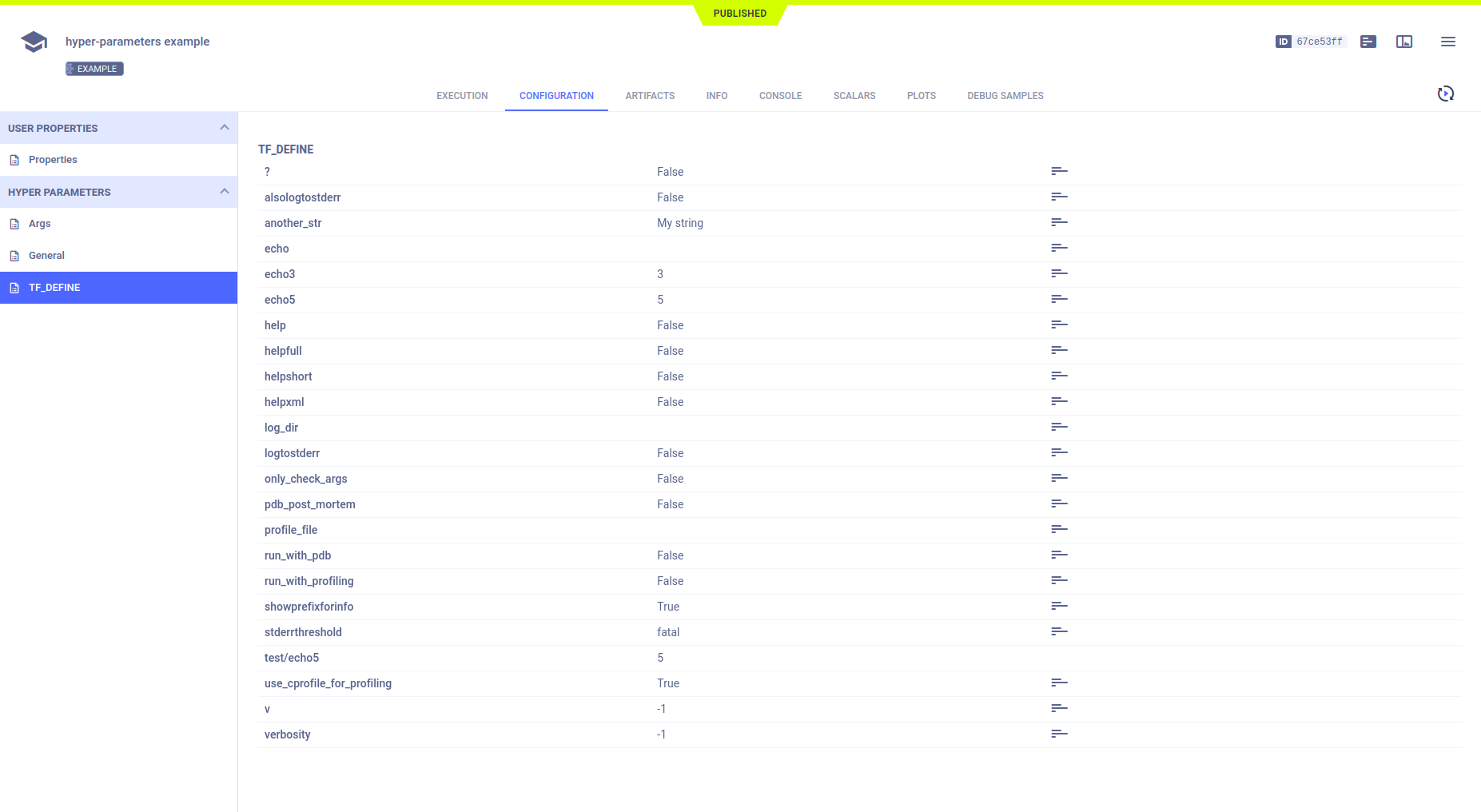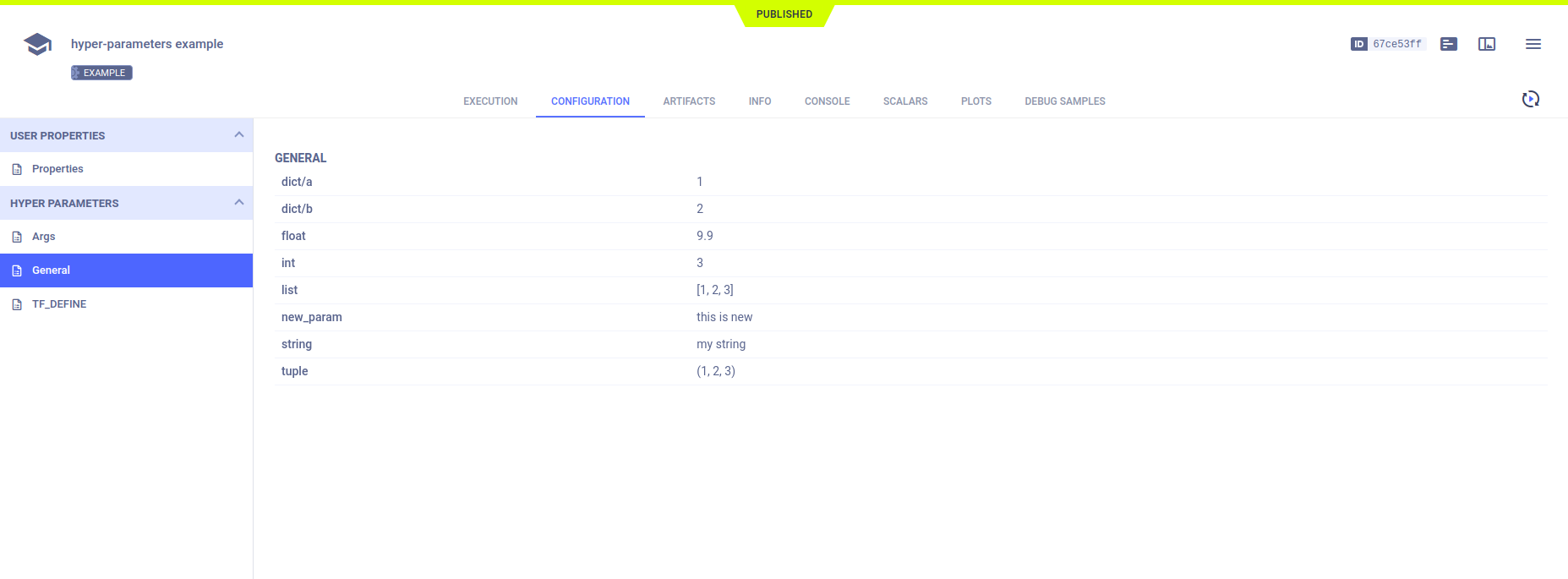2.8 KiB
| title |
|---|
| Hyperparameters Reporting |
The hyper_parameters.py example script demonstrates:
- ClearML's automatic logging of
argparsecommand line options and TensorFlow Definitions - Logging user-defined hyperparameters with a parameter dictionary and connecting the dictionary to a Task.
Hyperparameters appear in the web UI in the task's page, under CONFIGURATION > HYPERPARAMETERS.
Each type is in its own subsection. Parameters from older tasks are grouped together with the argparse command
line options (in the Args subsection).
When the script runs, it creates a task named hyper-parameters example in the examples project.
Argparse Command Line Options
If a code uses argparse and initializes a Task, ClearML automatically logs the argparse arguments.
parser = ArgumentParser()
parser.add_argument('--argparser_int_value', help='integer value', type=int, default=1)
parser.add_argument(
'--argparser_disabled', action='store_true', default=False, help='disables something'
)
parser.add_argument('--argparser_str_value', help='string value', default='a string')
args = parser.parse_args()
Command line options appears in HYPERPARAMETERS > Args.
TensorFlow Definitions
ClearML automatically logs TensorFlow Definitions, whether they are defined before or after the Task is initialized.
flags.DEFINE_string('echo', None, 'Text to echo.')
flags.DEFINE_string('another_str', 'My string', 'A string', module_name='test')
task = Task.init(project_name='examples', task_name='hyperparameters example')
flags.DEFINE_integer('echo3', 3, 'Text to echo.')
flags.DEFINE_string('echo5', '5', 'Text to echo.', module_name='test')
TensorFlow Definitions appear in HYPEPARAMETERS > TF_DEFINE.
Parameter Dictionaries
Connect a parameter dictionary to a Task by calling Task.connect(),
and ClearML logs the parameters. ClearML also tracks changes to the parameters.
parameters = {
'list': [1, 2, 3],
'dict': {'a': 1, 'b': 2},
'tuple': (1, 2, 3),
'int': 3,
'float': 2.2,
'string': 'my string',
}
parameters = task.connect(parameters)
# adding new parameter after connect (will be logged as well)
parameters['new_param'] = 'this is new'
# changing the value of a parameter (new value will be stored instead of previous one)
parameters['float'] = '9.9'
Parameters from dictionaries connected to Tasks appear in HYPERPARAMETERS > General.


